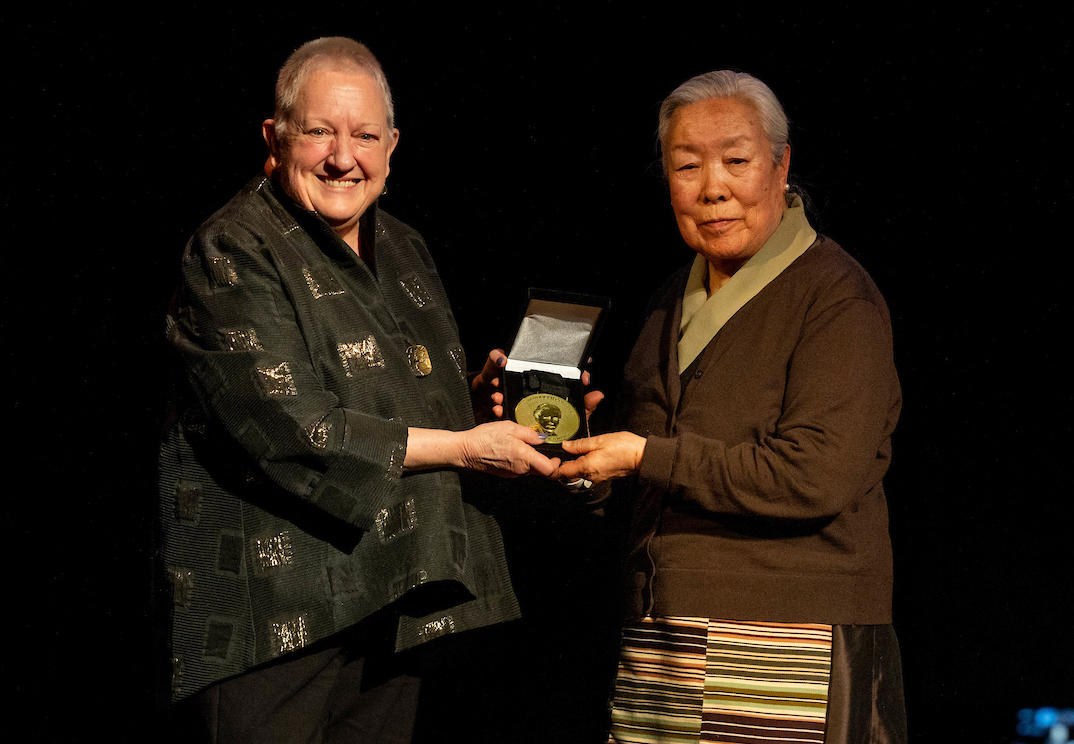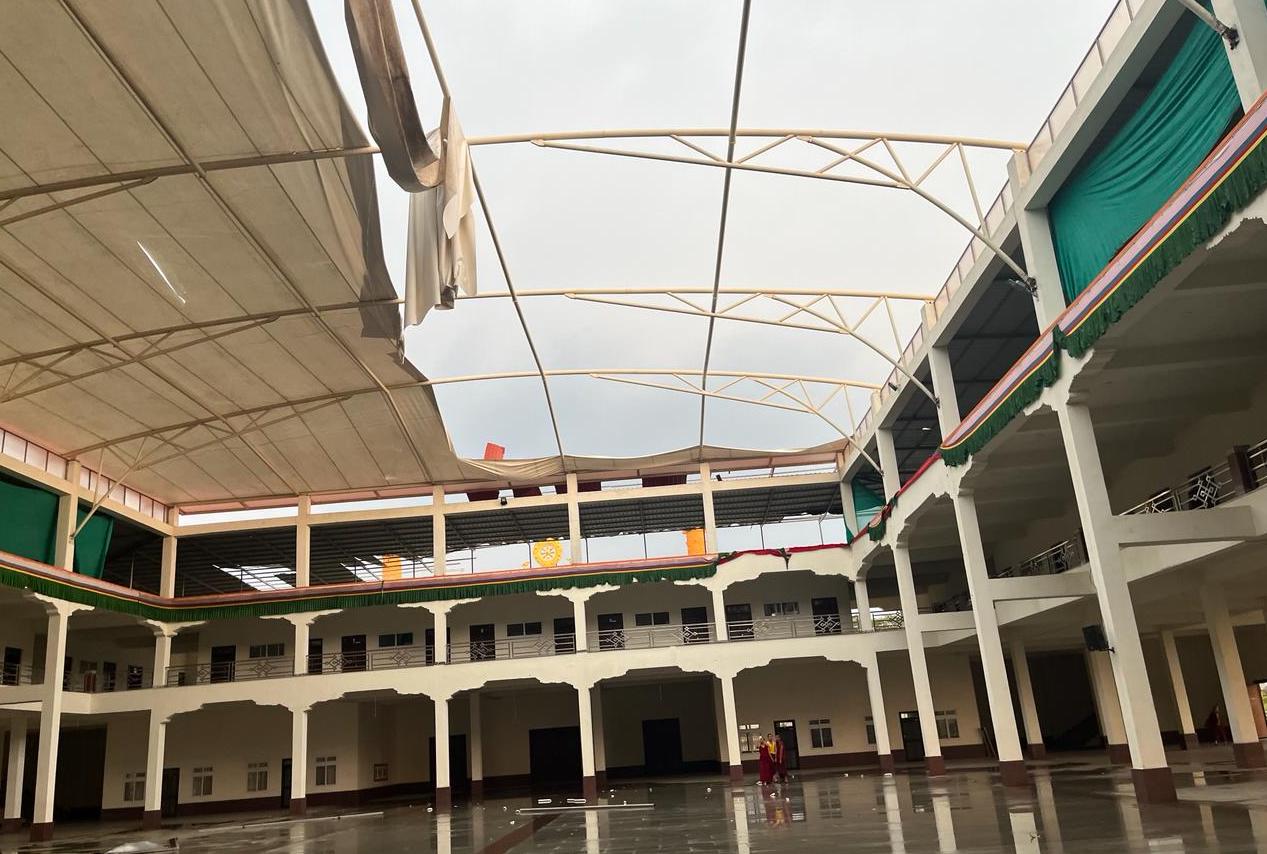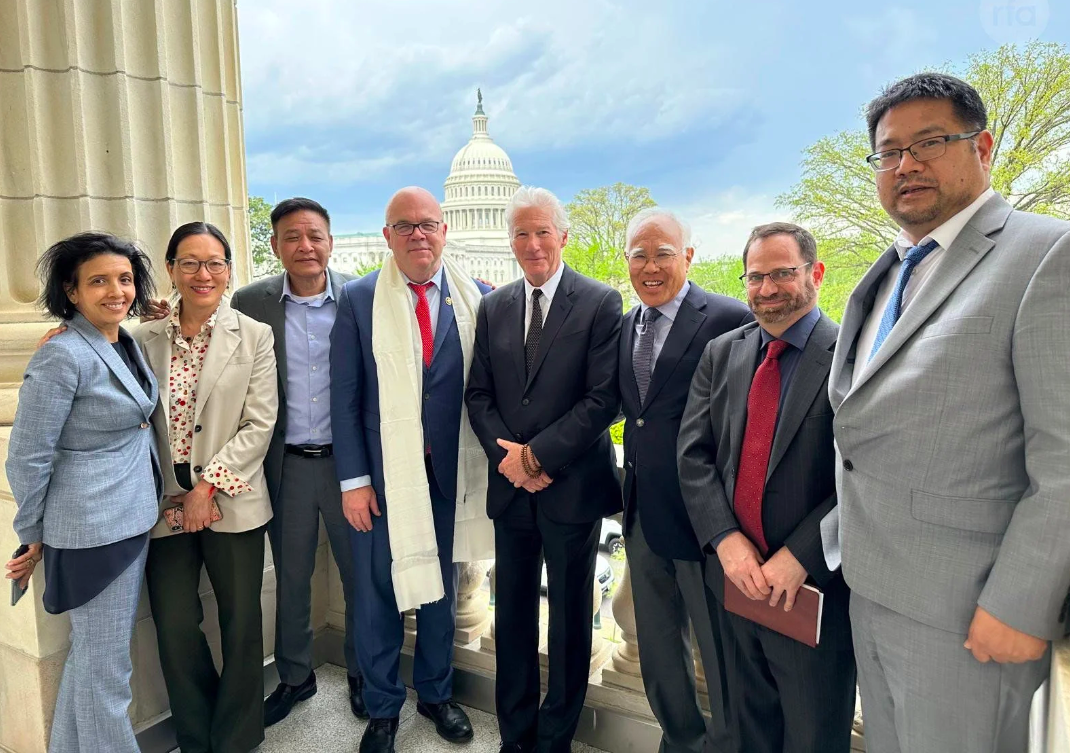By Viji Sundaram
Editor’s Note: China’s handling of Tibet caused many Tibetans in the Bay Area to rally. NAM editor Viji Sundaram interviewed protesters in front of the Chinese consulate in San Francisco. Photo credits: Pete Micek.
SAN FRANCISCO, March 18 – More than 150 Tibetans and their supporters shouted slogans, carried banners and waved the Tibetan flag to protest China’s handling of the unrest in their Himalayan country that began March 10.
That day marked the 49th anniversary of a large uprising in Tibet that led to the Chinese occupation of the mountain country, and the escape and exile of the Dalai Lama, the spiritual leader of the Tibetans.
With police standing by, the demonstrators, many of them wearing bright yellow ponchos painted with slogans demanding Tibet’s freedom, stood outside the Chinese consulate on Laguna Street and denounced the killing of around 30 protestors in Lhasa and the arrest of hundreds of others.
One young Tibetan hurled rocks at the consulate building before the police arrived. He was quickly restrained by his fellow protestors and led away.
“Shame on China! Shame on China!” shouted another protestor through a bullhorn.tibet flags
“We are fed up with the way we are suppressed in Tibet,” said Tashi, a member of the Tibetan Association of Northern California, who asked that only his first name be used because he feared retaliation by the Chinese government against his family who still remained in Tibet.
“Olympics in China! Torture in Tibet!” shouted a young woman who led the chants, even as tears rolled down her cheeks.
Protestors said that they wanted to ensure that the Chinese government is not allowed to use the Olympics to “gloss over” its rule in Tibet.
pix“A rogue government like China doesn’t deserve the Olympics,” asserted Tashi, who fled Tibet with his parents in 1976 and lived for some years in Dharamsala before he moved to the United States.
Although Tibetans worldwide have for nearly 50 years been observing March 10 with protests, this was the first time in nearly two decades that the protests have been so intense, said Tashi.
Over the last year, Tibetans have been watching with growing concern as hundreds of thousands of Chinese pour into Tibet in the train connecting Beijing with Lhasa, said Ngodup Tsering, president of the Tibetan Association of Northern California.
“As more and more Chinese arrive, the Tibetans are finding that fewer and fewer job opportunities are there for them,” Tsering said. “Right now, more than one-third of the people living in Tibet are Chinese.”
Tashi acknowledged that China’s hosting of the Olympics in August has given Tibetans an opportunity to demand changes as the international spotlight remains on the country. The protests last week were partly triggered by this, he said, but it was mostly “spontaneous.”
Before the San Francisco protestors assembled in front of the Chinese consulate, many of them swung by Civic Center to ask Mayor Gavin Newsom to protest his official welcome of China’s Olympic torch and take a stand for freedom and human rights. The torch is expected to arrive in San Francisco April 19, the only North American stop along the global relay route.
According to news reports, on March 15 the Dalai Lama, who has all along urged his followers to not use violence in their push for a free Tibet, accused China of waging “cultural genocide” against his followers.
Speaking from his home in Dharamsala, the Indian headquarters of the Tibetan government in exile, the spiritual leader called for a United Nations inquiry into the suppression of the protests in Tibet.
Last week’s protests were initially started by Buddhist monks in Lhasa, but quickly swelled as lay people rallied behind the monks. The peaceful protests soon became violent as armed patrols cracked down on protestors. Dozens of stores, schools, homes and banks went up in flames. The protests have spread to other cities.
“Troublemakers are not holding a ‘peaceful demonstration,’” said the Chinese consulate in a March 16 press release when called for a comment. In fact, “they are trampling on peace and harming lives.”
The consulate maintained that “in order to uphold social stability and ensure the safety of the life and property of the general public, the relevant authorities of the Tibet Autonomous Region have taken law enforcement measures in response to the sabotaging activities in Tibet.”
Since the protests began last week, China has ordered foreign tourists to leave Tibet and tightly restricted reporting. According to the U.S. State Department, Beijing’s “repressive social and political controls continued to limit the fundamental freedoms of Tibetans and risked undermining Tibet’s unique cultural, religious, and linguistic heritage.”
A handful of non-Tibetans participated in the March 17 protests here, as they did at the candlelight vigil in Berkeley, Calif., March 14. Among them was Virginia Cambour, who said she was there to show her solidarity to the Tibetans. “Atrocities are going on in Tibet,” she said, adding: “I wonder why there are not more people out here protesting.”









